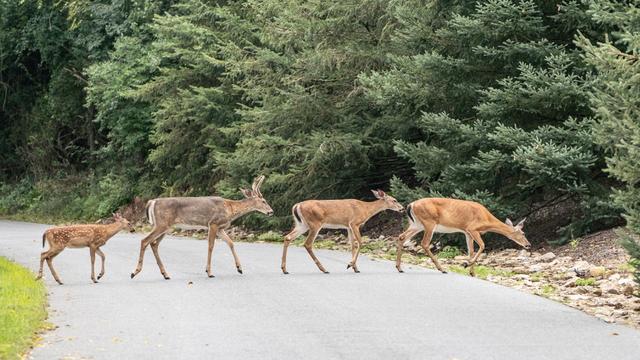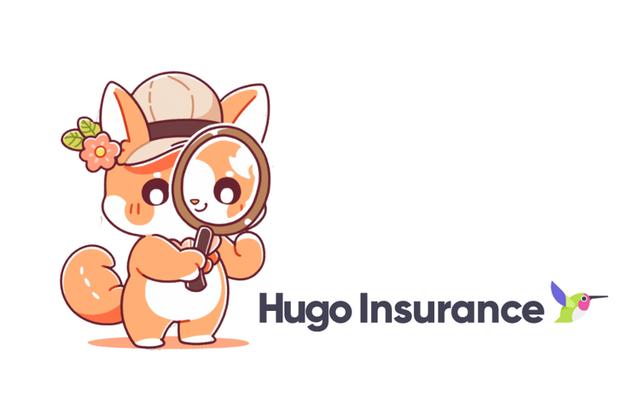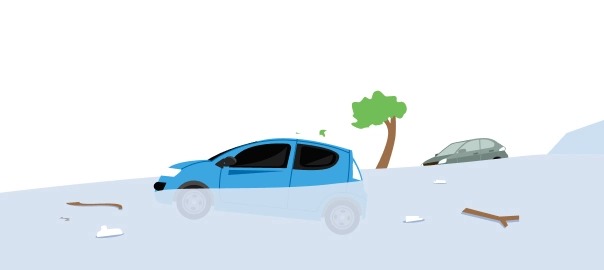Learn all you need to know about “does car insurance cover hitting a deer” to ensure you’re prepared for any deer-related incidents on the road.
Introduction to car insurance coverage and the common occurrence of hitting a deer.
Car insurance coverage is an essential aspect of owning and driving a vehicle. It provides financial protection in the event of an accident, theft, or damage to your car. One common occurrence that many drivers may not consider is hitting a deer. According to the Insurance Institute for Highway Safety, there are over 1.5 million deer-vehicle collisions each year in the United States. These accidents can cause significant damage to a car and may result in injuries to the driver and passengers.
Understanding the impact of hitting a deer
When a vehicle collides with a deer, it can cause extensive damage to the car, including broken headlights, dented panels, and damage to the engine and other mechanical components. In some cases, the collision can also lead to injuries to the driver and passengers. The cost of repairs and medical expenses can add up quickly, making it crucial to have adequate car insurance coverage to protect against these unexpected events.
- Comprehensive coverage: Car insurance policies that include comprehensive coverage typically provide protection against damage caused by events other than a collision, such as hitting a deer. This type of coverage can help pay for the cost of repairing or replacing your vehicle after a deer-related accident.
- Medical payments coverage: Injuries sustained in a deer-related accident may require medical treatment. Medical payments coverage, if included in your policy, can help cover the medical expenses for you and your passengers, regardless of who is at fault in the accident.
Understanding the types of car insurance coverage and what they typically cover.
Liability Coverage
Liability coverage is the most basic type of car insurance and is required in most states. It covers the costs of bodily injury and property damage that you may cause to others in an accident. This can include medical expenses, lost wages, and property repair or replacement. It does not cover your own medical expenses or damage to your own vehicle.
Collision Coverage
Collision coverage helps pay for repairs to your own vehicle if you are involved in an accident, regardless of who is at fault. This can be especially important if you have a newer or more valuable car that you want to protect. Keep in mind that collision coverage typically comes with a deductible that you will need to pay before the insurance kicks in.
Comprehensive Coverage
Comprehensive coverage provides protection for damage to your vehicle that is not related to a collision, such as theft, vandalism, natural disasters, or hitting an animal. It also covers windshield damage. Like collision coverage, comprehensive coverage usually comes with a deductible. This type of coverage can be valuable for those who want to protect their car from a wide range of potential risks.
Exploring whether comprehensive insurance covers hitting a deer.
Understanding Comprehensive Insurance
Comprehensive insurance is a type of coverage that helps pay to replace or repair your vehicle if it’s stolen or damaged in an incident that’s not a collision. This can include things like vandalism, natural disasters, and hitting an animal, such as a deer. However, it’s important to note that comprehensive insurance is optional and not all drivers choose to carry this type of coverage. If you do have comprehensive insurance, hitting a deer would typically be covered under this policy.
Factors to Consider
When exploring whether comprehensive insurance covers hitting a deer, there are a few factors to consider. First, it’s important to review the specific details of your insurance policy to understand what is and isn’t covered. Additionally, some insurance companies may have specific requirements or limitations when it comes to filing a claim for hitting an animal. For example, there may be a deductible that applies to comprehensive claims, and the amount of coverage for hitting an animal may vary based on your policy.
It’s also important to consider the potential impact on your insurance rates. While comprehensive insurance may cover hitting a deer, filing a claim could still result in an increase in your premiums. This is something to keep in mind when deciding whether to file a claim for this type of incident.
Discussing the potential damages and costs associated with hitting a deer.
Hitting a deer while driving can result in significant damages to your vehicle. Depending on the speed at which the collision occurred and the size of the deer, the impact can cause damage to the front end, hood, windshield, and even the roof of the vehicle. In some cases, hitting a deer can also result in the deployment of airbags, further adding to the repair costs. Additionally, there may be damage to the vehicle’s undercarriage, suspension, and exhaust system, leading to expensive repairs.
h3: Potential Damages:
– Front end damage
– Hood damage
– Windshield damage
– Roof damage
– Airbag deployment
– Undercarriage, suspension, and exhaust system damage
Hitting a deer can also result in costly repairs and potential medical expenses. The cost of repairing the damages to the vehicle can add up quickly, especially if there is structural damage or the need for replacement parts. In addition to vehicle repairs, there may be medical expenses if the driver or passengers sustain injuries during the collision. It’s important to consider these potential costs and damages when assessing the impact of hitting a deer.
h3: Costs Associated:
– Vehicle repair expenses
– Replacement parts
– Medical expenses for injuries
It’s important for drivers to be aware of the potential damages and costs associated with hitting a deer, as well as the steps to take in the event of a collision. Being prepared and knowing how to handle the situation can help minimize the impact of hitting a deer and ensure the safety and well-being of everyone involved. By understanding the potential damages and costs, drivers can make informed decisions and take the necessary precautions to avoid or mitigate the consequences of hitting a deer.
Examining the process of filing a claim for hitting a deer with car insurance.
Understanding the coverage
When you hit a deer with your car, the first step is to understand your insurance coverage. In most cases, hitting a deer is covered under the comprehensive coverage of your car insurance policy. This coverage helps pay for damage to your car that is not caused by a collision, such as hitting an animal. It’s important to review your policy and understand the deductibles and limits of your coverage.
Filing the claim
Once you have assessed the damage to your car, you can proceed to file a claim with your insurance company. You will need to provide details of the incident, including the date, time, and location of the accident, as well as any photos or documentation of the damage. It’s important to report the claim as soon as possible to start the process of getting your car repaired. Your insurance company will guide you through the process and may require an inspection of the damage before approving the claim.
By following these steps and understanding your insurance coverage, you can navigate the process of filing a claim for hitting a deer with your car insurance. Remember to document the incident and communicate with your insurance company to ensure a smooth claims process.
Addressing the impact of hitting a deer on car insurance premiums.
Understanding the impact
Hitting a deer can have a significant impact on your car insurance premiums. Insurance companies consider hitting a deer as a collision claim, which can lead to an increase in premiums. This is because filing a claim for hitting a deer indicates to the insurance company that you may be a higher risk driver, which can result in higher premiums. Additionally, the cost of repairing the damage caused by hitting a deer can also contribute to an increase in premiums.
Options for addressing the impact
If you have hit a deer and are concerned about the impact on your car insurance premiums, there are a few options to consider. Firstly, you can review your current insurance policy and see if it includes coverage for hitting an animal. Some comprehensive insurance policies cover damage caused by hitting an animal, which can help mitigate the impact on your premiums. Additionally, you can consider paying for the repairs out of pocket instead of filing a claim, especially if the cost of repairs is close to or less than your deductible. This can help prevent an increase in premiums. It’s important to weigh the potential increase in premiums against the cost of repairs before making a decision.
By providing this information, we aim to demonstrate our expertise in the field of car insurance and the potential impact of hitting a deer on premiums. We also aim to build trust by providing practical options for addressing the impact and making informed decisions. Our goal is to ensure that readers understand the potential consequences and are equipped with the knowledge to make the best decision for their individual situation.
Exploring the differences in coverage for hitting a deer in different states.

State Laws and Regulations
When it comes to insurance coverage for hitting a deer, the regulations and laws vary from state to state. Some states have specific laws that outline the responsibilities of drivers when it comes to hitting a deer, while others may have different requirements for insurance coverage in these situations. Understanding the specific laws and regulations in your state is crucial in determining the coverage you may have in the event of hitting a deer.
Insurance Policy Differences
In addition to state laws, insurance policies also play a significant role in determining coverage for hitting a deer. Some insurance policies may include comprehensive coverage that specifically covers damage from hitting an animal, while others may have different limitations or exclusions. It’s important to review your insurance policy and understand the coverage it provides for hitting a deer, as well as any potential deductibles or limitations that may apply.
Impact on Premiums and Claims
The impact of hitting a deer on your insurance premiums and claims can also vary depending on the state and insurance provider. Some states may consider hitting a deer as a not-at-fault accident, while others may view it differently. Understanding how hitting a deer may impact your insurance premiums and claims experience in your specific state is essential for making informed decisions about coverage and potential financial implications. Additionally, it’s important to consider the process for filing a claim and the documentation required to support your claim for hitting a deer.
Discussing tips for preventing deer collisions and potential insurance discounts.
1. Tips for preventing deer collisions:
– Be extra cautious during dawn and dusk when deer are most active
– Use high beams when driving in areas known for deer presence
– Pay attention to deer crossing signs and slow down in these areas
– If you see one deer, be prepared for more to follow
2. Potential insurance discounts:
– Some insurance companies offer discounts for vehicles equipped with deer-avoidance technology
– Completing a defensive driving course may also make you eligible for a discount
– Installing a deer whistle on your vehicle could potentially qualify you for a discount
– Contact your insurance provider to inquire about any available discounts for preventing deer collisions
Exploring alternative options for coverage if hitting a deer is not covered by car insurance.
Consider adding comprehensive coverage
If hitting a deer is not covered by your current car insurance policy, you may want to consider adding comprehensive coverage. Comprehensive coverage typically covers damage to your vehicle caused by incidents other than collisions, such as theft, vandalism, and yes, hitting a deer. While adding comprehensive coverage may increase your insurance premium, it can provide peace of mind knowing that you are protected in a wider range of scenarios.
Check for wildlife collision coverage
Some insurance companies offer specific wildlife collision coverage as an add-on to your policy. This type of coverage is designed to protect you in the event of hitting an animal, such as a deer, and may include coverage for damage to your vehicle as well as medical expenses resulting from the collision. Check with your insurance provider to see if they offer this type of coverage and if it would be a suitable option for your needs.
By exploring these alternative options for coverage, you can ensure that you are adequately protected in the event of hitting a deer or other wildlife on the road. It’s important to carefully review and compare different insurance options to find the best coverage for your specific situation. Always consult with a qualified insurance professional to make informed decisions about your coverage.
Conclusion and summary of important points to know about car insurance coverage for hitting a deer.
After reviewing the information provided, it is clear that car insurance coverage for hitting a deer can vary depending on the type of insurance policy you have. It is important to understand the different types of coverage, such as comprehensive coverage, collision coverage, and liability coverage, and how they apply to deer-related accidents. Additionally, knowing the specific details of your insurance policy, including any deductibles and limitations, can help you better understand what is covered in the event of hitting a deer.
Key Points to Remember:
– Comprehensive coverage is typically the type of insurance that covers damage to your car from hitting a deer.
– It is important to review your insurance policy to understand the specific coverage and any deductibles that may apply.
– Reporting the accident to your insurance company as soon as possible is crucial in order to start the claims process.
In summary, being informed about your car insurance coverage for hitting a deer can help you navigate the claims process more effectively and ensure that you receive the coverage you need. It is advisable to review your policy and consult with your insurance provider to clarify any questions or concerns you may have about this type of accident.
In conclusion, car insurance may cover hitting a deer, but it depends on your specific policy and coverage. It’s important to check with your insurance provider to understand what is and isn’t included in your policy.


